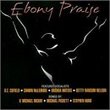| All Artists: Gustav Mahler, Hector Berlioz, John Barbirolli, BBC Symphony Orchestra, Heather Harper Title: Mahler: Symphony No. 4; Berlioz: Le Corsaire Members Wishing: 0 Total Copies: 0 Label: BBC Legends Release Date: 5/18/1999 Genre: Classical Styles: Historical Periods, Modern, 20th, & 21st Century, Symphonies Number of Discs: 1 SwapaCD Credits: 1 UPC: 684911401424 |
Search - Gustav Mahler, Hector Berlioz, John Barbirolli :: Mahler: Symphony No. 4; Berlioz: Le Corsaire
 | Gustav Mahler, Hector Berlioz, John Barbirolli Mahler: Symphony No. 4; Berlioz: Le Corsaire Genre: Classical
|
Larger Image |
CD DetailsSimilar CDs |
CD Reviews'Live' Mahler from Barbirolli T. Beers | Arlington, Virginia United States | 08/03/2001 (5 out of 5 stars) "Sir John Barbirolli (1899-1970) was one of the great Mahler conductors of his day, but he only recorded symphonies 1, 5, 6 and 9 in the studio. Enter the BBC with studio-quality live recordings from their archives to fill in some of the gaps! (Besides symphony 4, the BBC also have released numbers 3 and 7 in this series; number 2 - the "Resurrection Symphony - is now available as part of a 2-disc set in EMI's "Great Conductors" series.) As with all of Sir John's Mahler recordings, tempos in his 4th symphony performance are expansive and phrasing is broad. If the performance is a bit untidy now and then, hey, these are real jobs, not "canned" in a studio. As far as the technical quality is concerned, all recordings except number 7 are stereo, expertly re-mastered from original source tapes using 24 bit technology. Symphony 4 comes from a concert in Prague in 1967 where Barbirolli appeared with the BBC Symphony Orchestra after touring eastern Europe and Russia. (The other BBC recordings feature Sir John's own Halle Orchestra of Manchester.) The soprano soloist is the marvelous Heather Harper. I can't imagine these performances will be with us forever, so snap all of them up while you can. Not for "digital only" audio fanatics or the "note perfect" crowd, maybe, but sheer heaven for everyone else!" A tremendous performance of the Mahler Alan | New York, NY | 06/29/2003 (5 out of 5 stars) "Thanks to the BBC for the many superb releases in this series, of which this is an excellent example.As with his Mahler Third and Seventh in this same series, Barbirolli's Fourth is at or near the top among recorded performances. With so many Fourths out there, that's really saying something.Every note is played with such loving care, every moment is handled with such attention to detail, and yet none of it seems fussy. As in the Third and Seventh, Barbirolli seems to completely understand how to project the symphony as a dramatic entity. Every detail and phrase is articulated in a way that hits home and makes its point, but nothing ever seems too much. And despite the inevitable bloopers (mostly from the horns in this case) that are to be expected in a live performance, the BBC Symphony plays with exceptional beauty and feeling.The sound is superb for a live performance from 1967. A good number of audience coughs are audible, but it was Prague in January, after all.Much as I like several other performances of this symphony--Karajan, van Beinum (never to my knowledge issued on CD), Szell, Britten (also part of this BBC series), and Klemperer--this may be my favorite. If you like other Barbirolli Mahler you've heard, grab this one. I think you'll be very happy you did.The Berlioz makes an excellent filler, but the Mahler is obviously the main event here." Fantastic!! Noam Zur | 08/18/2001 (5 out of 5 stars) "This performace is difintely one of a kind. Though the playing is not perfect, technically, as the Halle orchestra was not yet accustomed to Barbirolli's perfectionism, as is apparent in the Mahler 5th Symphony, Mahler 7th Symphony, or Bruckners 9th, it is still very high.But unsurpassable is the feeling and excitement that Barbirolli manages to evoke out of this score (and all Mahler scores, for that matter). He is definitely a one of a kind conductor, whose legacy has not been recognized, both during and after his life-time. Had he come in contact with New York, not right after Toscanini left the orchestra, maybe we would have had even more of possibilities of remembering him."
|

 Track Listings (5) - Disc #1
Track Listings (5) - Disc #1
